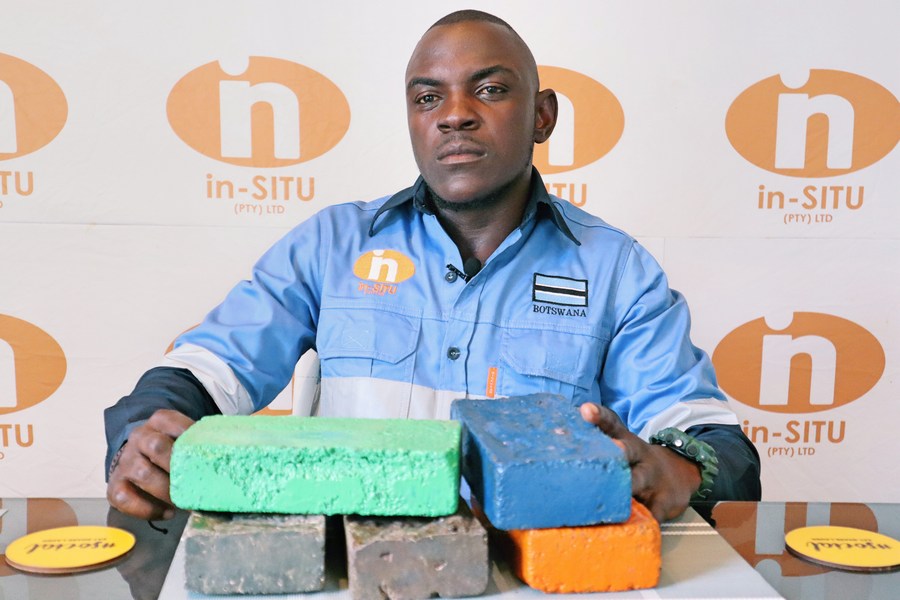
Batshani Nthoi, founder of civil works company In-Situ, showcases plastic pavers in Gaborone, Botswana, on Nov. 17, 2021. (Photo by Sharon Tshipa/Xinhua)
Recycling initiatives with the mandate to redress the negative effects of non-biodegradable plastics on the environment are creating new business opportunities in Botswana.
GABORONE, Nov. 24 (Xinhua) -- Recycling initiatives with the mandate to redress the negative effects of non-biodegradable plastics on the environment are creating new business opportunities in Botswana.
One such initiative is In-Situ, a civil works company founded by 31-year-old Batshani Nthoi, who turns plastic waste into colored brick pavers that are seeing increasing demand.
After 10 years of working for major international construction companies based in Botswana such as Murray & Roberts, Stefanutti Stocks and Jumcorp, in 2018, Nthoi thought it was time he used his skills to start and manage a company that would create employment for other youth while keeping the environment clean and unburdening the local landfills.
"In 2015, my internet research led me to Indonesia, where I saw plastic pavers being manufactured to rectify the problem of plastics that were all over the country," Nthoi told Xinhua. According to him, this experience presented him with the opportunity to be unique and different from those manufacturing pavers locally using cement.
"Our products come in a variation of colours such as blue, orange and green. They are also waterproof making them easy to clean," said Nthoi.

Batshani Nthoi, founder of civil works company In-Situ, poses for a photo in Gaborone, Botswana, on Nov. 17, 2021. (Photo by Sharon Tshipa/Xinhua)
Nthoi explained that compared to the common concrete bricks, his bricks are more reliable as they constitute shredded plastic, river sand and are then burned at high temperatures of about 360 degrees.
"When polymer-plastic cools down, it hardens, giving it high compressive strength. The bricks are five to seven times stronger than normal bricks and they have less air pockets, making them less brittle, with minimal chances of breakage," he said.
Nthoi added his bricks are also cheaper and have been tried and tested in residential landscaping, walkways and driveways. "Our plans for 2022 are to work with the government and use this product in the driveways of the capital city as well as Francistown. This is because due to the durability of our bricks, we won't have chances of potholes, which are a current concern in most roads of the capital city Gaborone," he said.
The entrepreneur also aims to use plastics to produce roofing tiles and stormwater pipes, eliminating cement altogether, while ensuring plastics do not pollute the environment. This he said was inspired by the cement shortage that Botswana experienced during the ongoing COVID-19 Pandemic. ■




